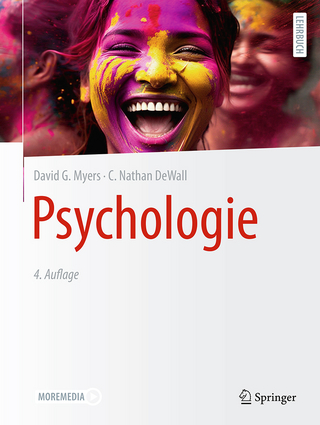
Single-Session Integrated CBT (SSI-CBT)
Routledge (Verlag)
978-1-138-63959-1 (ISBN)
- Titel erscheint in neuer Auflage
- Artikel merken
Until quite recently, therapist training was predicated on the notion that therapy is an ongoing process. Single-Session Integrated CBT (SSI-CBT) questions this. In this book, Windy Dryden takes long standing research on SSI therapy and transfers it to the field of CBT in a timely and conceptual application. Based on his extensive work demonstrating the benefits of single-session CBT to public and professional audiences, Dryden has developed a single-session approach for work in the therapy and coaching fields.
Comprising 30 key points, and divided into two parts - Theory and Practice - this concise book covers the key features of SSI-CBT. It will offer essential guidance for students and practitioners experienced in CBT, as well as practitioners from other theoretical orientations who require an accessible guide to the distinctive theoretical and practical features of this exciting new approach.
Windy Dryden is in full-time clinical and consultative practice and is an international authority on Cognitive Behaviour Therapy. He is Emeritus Professor of Psychotherapeutic Studies at Goldsmiths, University of London. He has worked in psychotherapy for more than 40 years and is the author of over 200 books.
1. Single Session Integrated CBT (SSI-CBT): What it is and some basic assumptions 2. Working alliance theory: A generic framework for SSI-CBT 3. People largely create and maintain their problems by a range of cognitive-behavioural factors 4. As far as possible clients should be helped to deal healthily with the adversity involved in their problem, whether real or inferred 5. Human beings have the capability to help themselves quickly under specific circumstances 6. It is important to privilege clients’ viewpoints in SSI-CBT 7. Who can benefit from SSI-CBT? 8. Contraindications for SSI-CBT 9. A focus on problems and goals is both important in SSI-CBT 10. Carry out a full assessment and do as much case formulation as you can in the time available 11. In SSI-CBT it is possible to help clients identify and deal with a central mechanism responsible for the existence of their problems 12. The person’s subsequent responses to their first response are often more important than the first response itself 13. It is important to draw upon a range of client variables in SSI-CBT 14. Helpful client characteristics for SSI-CBT 15. Helpful therapist characteristics for SSI-CBT 16. Good Practice in SSI-CBT 17. An Overview of the SSI-CBT Process 18. The first contact 19. The pre-session phone-call 20. The face-to-face session. 1: Beginning 21. The face-to-face session. 2: Creating a focus 22. The face-to-face session. 3: Understanding the target problem 23. The face-to-face session. 4: Setting a goal 24. The face-to-face session. 5: Identifying problematic cognitions 25. The face-to-face session. 6: Dealing with problematic cognitions 26. The face-to-face session. 7: Making an impact 27. The face-to-face session. 8: Encouraging the client to apply learning inside and outside the session 28. The face-to-face session. 9: Summarising, tidying up loose ends and the client’s commitment to the future 29. After the face-to-face session: Reflection, the recording and the transcript 30. The follow-up session and evaluation References Appendix 1
| Erscheinungsdatum | 01.04.2017 |
|---|---|
| Reihe/Serie | CBT Distinctive Features |
| Zusatzinfo | 8 Tables, black and white; 2 Line drawings, black and white; 2 Halftones, black and white |
| Verlagsort | London |
| Sprache | englisch |
| Gewicht | 226 g |
| Themenwelt | Geisteswissenschaften ► Psychologie ► Klinische Psychologie |
| Medizin / Pharmazie ► Medizinische Fachgebiete ► Psychiatrie / Psychotherapie | |
| Sozialwissenschaften ► Soziologie | |
| ISBN-10 | 1-138-63959-1 / 1138639591 |
| ISBN-13 | 978-1-138-63959-1 / 9781138639591 |
| Zustand | Neuware |
| Haben Sie eine Frage zum Produkt? |
aus dem Bereich



